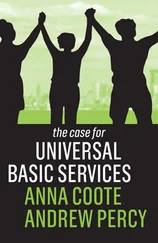A second great lesson from Eastern Europe has been that of peaceful change. In the past, enslaved peoples often resorted to violence in their struggle to be free. Now, following in the footsteps of Mahatma Gandhi and Martin Luther King, Jr., these peaceful revolutions offer future generations a wonderful example of successful, nonviolent change. When in the future major changes in society again become necessary, our descendants will be able to look back on the present time as a paradigm of peaceful struggle, a real success story of unprecedented scale, involving more than a dozen nations and hundreds of millions of people. Moreover, recent events have shown that the desire for both peace and freedom lies at the most fundamental level of human nature and that violence is its complete antithesis.
Before considering what kind of global order would serve us best in the post-Cold War period, I think it is vital to address the question of violence, whose elimination at every level is the necessary foundation for world peace and the ultimate goal of any international order.
Nonviolence and international order
Every day the media reports incidents of terrorism, crime and aggression. I have never been to a country where tragic stories of death and bloodshed did not fill the newspapers and airwaves. Such reporting has become almost an addiction for journalists and their audiences alike. But the overwhelming majority of the human race does not behave destructively; very few of the five billion people on this planet actually commit acts of violence. Most of us prefer to be as peaceful as possible.
Basically, we all cherish tranquility, even those of us given to violence. For instance, when spring comes, the days grow longer, there is more sunshine, the grass and trees come alive and everything is very fresh. People feel happy. In autumn, one leaf falls, then another, then all the beautiful flowers die until we are surrounded by bare, naked plants. We do not feel so joyful. Why is this? Because deep down, we desire constructive, fruitful growth and dislike things collapsing, dying or being destroyed. Every destructive action goes against our basic nature; building, being constructive is the human way.
I am sure everybody agrees that we need to overcome violence, but if we are to eliminate it completely, we should first analyze whether or not it has any value.
If we address this question from a strictly practical perspective, we find that on certain occasions violence indeed appears useful. One can solve a problem quickly with force. At the same time, however, such success is often at the expense of the rights and welfare of others. As a result, even though one problem has been solved, the seed of another has been planted.
On the other hand, if one's cause is supported by sound reasoning, there is no point in using violence. It is those who have no motive other than selfish desire and who cannot achieve their goal through logical reasoning who rely on force. Even when family and friends disagree, those with valid reasons can cite them one after the other and argue their case point by point, whereas those with little rational support soon fall prey to anger: Thus anger is not a sign of strength but one of weakness.
Ultimately, it is important to examine one's own motivation and that of one's opponent. There are many kinds of violence and nonviolence, but one cannot distinguish them from external factors alone. If one's motivation is negative, the action it produces is, in the deepest sense, violent, even though it may appear to be smooth and gentle. Conversely, if one's motivation is sincere and positive but the circumstances require harsh behavior, essentially one is practicing nonviolence. No matter what the case may be, I feel that a compassionate concern for the benefit of others-not simply for oneself-is the sole justification for the use of force.
The genuine practice of nonviolence is still somewhat experimental on our planet, but its pursuit, based on love and understanding, is sacred. If this experiment succeeds, it can open the way to a far more peaceful world in the next century.
I have heard the occasional Westerner maintain that long-term Gandhian struggles employing nonviolent passive resistance do not suit everybody and that such courses of action are more natural in the East. Because Westerners are active, they tend to seek immediate results in all situations, even at the cost of their lives. This approach, I believe, is not always beneficial. But surely the practice of nonviolence suits us all. It simply calls for determination. Even though the freedom movements of Eastern Europe reached their goals quickly, nonviolent protest by its very nature usually requires patience.
In this regard, I pray that despite the brutality of their suppression and the difficulty of the struggle they face, those involved in China's democracy movement will always remain peaceful. I am confident they will. Although the majority of the young Chinese students involved were born and raised under an especially harsh form of communism, during the spring of 1989 they spontaneously practiced Mahatma Gandhi's strategy of passive resistance. This is remarkable and clearly shows that ultimately all human beings want to pursue the path of peace, no matter how much they have been indoctrinated.
The reality of war
Of course, war and the large military establishments are the greatest sources of violence in the world. Whether their purpose is defensive or offensive, these vast powerful organizations exist solely to kill human beings. We should think carefully about the reality of war. Most of us have been conditioned to regard military combat as exciting and glamorous-an opportunity for men to prove their competence and courage. Since armies are legal, we feel that war is acceptable; in general, nobody feels that war is criminal or that accepting it is a criminal attitude. In fact, we have been brainwashed. War is neither glamorous nor attractive. It is monstrous. Its very nature is one of tragedy and suffering.
War is like a fire in the human community, one whose fuel is living beings. I find this analogy especially appropriate and useful. Modem warfare is waged primarily with different forms of fire, but we are so conditioned to see it as thrilling that we talk about this or that marvelous weapon as a remarkable piece of technology without remembering that, if it is actually used, it will burn living people. War also strongly resembles a fire in the way it spreads. If one area gets weak, the commanding officer sends in reinforcements. This is like throwing live people onto a fire. But because we have been brainwashed to think this way, we do not consider the suffering of individual soldiers. No soldier wants to be wounded or die; none of his loved ones wants any harm to come to him. If one soldier is killed, or maimed for life, at least another five or ten people-his relatives and friends suffer as well. We should all be horrified by the extent of this tragedy, but we are too confused.
Frankly, as a child, I too was attracted to the military. Their uniforms looked so smart and beautiful. But that is exactly how the seduction begins. Children start playing games that will one day lead them into trouble. There are plenty of exciting games to play and costumes to wear other than those based on the killing of human beings. Again, if we as adults were not so fascinated by war, we would clearly see that to allow our children to become habituated to war games is extremely unfortunate. Some former soldiers have told me that when they shot their first person they felt uncomfortable but as they continued to kill it began to feel quite normal. In time, we can get used to anything.
It is not only during times of war that military establishments are destructive By their very design, they are the single greatest violators of human rights, and it is the soldiers themselves who suffer most consistently from their abuse. After the officers in charge have given beautiful explanations about the importance of the army, its discipline and the need to conquer the enemy, the rights of the great mass of soldiers are almost entirely taken away. They are then compelled to forfeit their individual will, and, in the end, to sacrifice their lives. Moreover, once an army has become a powerful force, there is every risk that it will destroy the happiness of its own country.
Читать дальше












